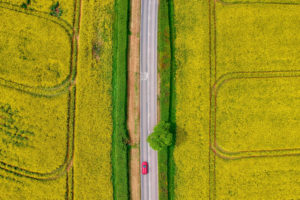Harmful industries have long done their best to hoodwink the public to maintain their profitability. They unscrupulously foist real costs on a public that would very probably never tolerate them were they well informed. Tobacco is a prime example.
The tobacco playbook
Back in the 1950s, the tobacco industry adopted a strategy of falsehood and obfuscation as a means of preserving and growing their industry. They labeled the growing evidence that smoking was a major cause of lung cancer, heart disease and other serious ailments “junk science”; they lobbied governments, spent enormous sums on advertising and public relations, feigning real concern for their customers. They took advantage of the news media’s unfortunate tendency to uncritically present ‘both sides’ of a story.
When new studies demonstrated ever more strongly the dangers of tobacco, the industry provided their bought-and-paid-for ‘experts’ to newspapers and other media to obscure the science and to tell the ‘other side’ of the story. Never mind that this ‘other side’ was full of lies. For decades, the tobacco industry was highly successful in keeping the public confused and addicted to its products. Countless lives were unnecessarily shortened, often in horribly painful ways.
The oil & gas industry, too, has been very successful in employing essentially the same strategy. They too, very successfully exploited the news media’s tendency to falsely grant all viewpoints the same scientific legitimacy when reporting on controversial issues. They’ve confused the public and delayed – for decades – essential action that is desperately needed to prevent catastrophic climate change. And to this day, they continue to succeed in their extraordinarily dangerous endeavor.
Animal agriculture is in on the act
Not surprisingly, industrial agriculture is in on the act – animal agriculture especially so. A massive polluter, a major source of greenhouse gases and the primary driver of deforestation and biodiversity loss, animal agriculture is presented to the public as, instead, a benign source of plentiful and tasty food. This has been accomplished, just as tobacco and big oil did, through the spending of millions of dollars lobbying governments and creating and promulgating disinformation. Scientists friendly to their cause are lavishly funded; industry ‘experts’ routinely question even the most solid of evidence of the harms being done.
The media is presenting a false ‘balance’
As with tobacco and oil & gas, animal agriculture is skillfully exploiting the news media to manipulate the public. Researchers at Towson University recently demonstrated just how well this exploitation of the media’s bias has worked.
Analyzing 238 newspaper articles published in 29 U.S. newspapers, the authors found major differences in the treatment of two related food issues. Articles that dealt with the need to curtail food waste tended to highlight the issue as a serious problem that should be dealt with quickly. In contrast, articles that included information about the need to shift our diets away from animal products generally presented the issue as very much open to debate.
Quoting the study, reducing food loss and waste was “presented as an issue with broad institutional and political support and diet change presented as more of an individual issue that is subject to controversy among stakeholders. … [T]he coverage [of reducing food loss] consistently reflected robust, enthusiastic involvement of many organizations and substantial funding from federal and state government agencies.”
In contrast, shifting diets was generally presented as “very personal”. Articles tended to emphasize meat industry claims that there is no need to reduce consumption of animal products, that efficiency improvements or ‘regenerative’ production methods could make even beef production – which is well established to be extraordinarily wasteful of resources – sustainable. As the authors emphasize, in “the case of diet shifts, news coverage does not reflect the evidence and urgency with which this change should happen to address climate change and myriad additional environmental, social, and economic challenges.”
The reality is that the scientific consensus is very strong that we must dramatically curtail animal agriculture. Clearly, the current situation with news coverage of this fact is not compatible with our long term well being.
What can be done?
The study’s authors suggest “that stakeholders speaking to journalists about diet shifts provide specific examples of consumer actions, business strategies, and/or policies that would catalyze diet shifts toward plants in order to increase tangibility of calls to ‘eat less meat’”. In addition, stakeholders working on diet shifts should anticipate talking points from industry groups and provide information to journalists that show the need for moving away from high-meat diets, no matter what production methods are used.”
In other words, to counter the onslaught of lies from the well-funded animal agriculture industry, we must speak up about this issue and when doing so, we should emphasize the considerable body of scientific evidence that the industry is trying to mischaracterize as just one side of a legitimate ‘debate’. If you are speaking with journalists, or even friends and family, please refer to Earthsave Canada’s website, blog and other resources for high quality coverage of the scientific literature on this topic.








